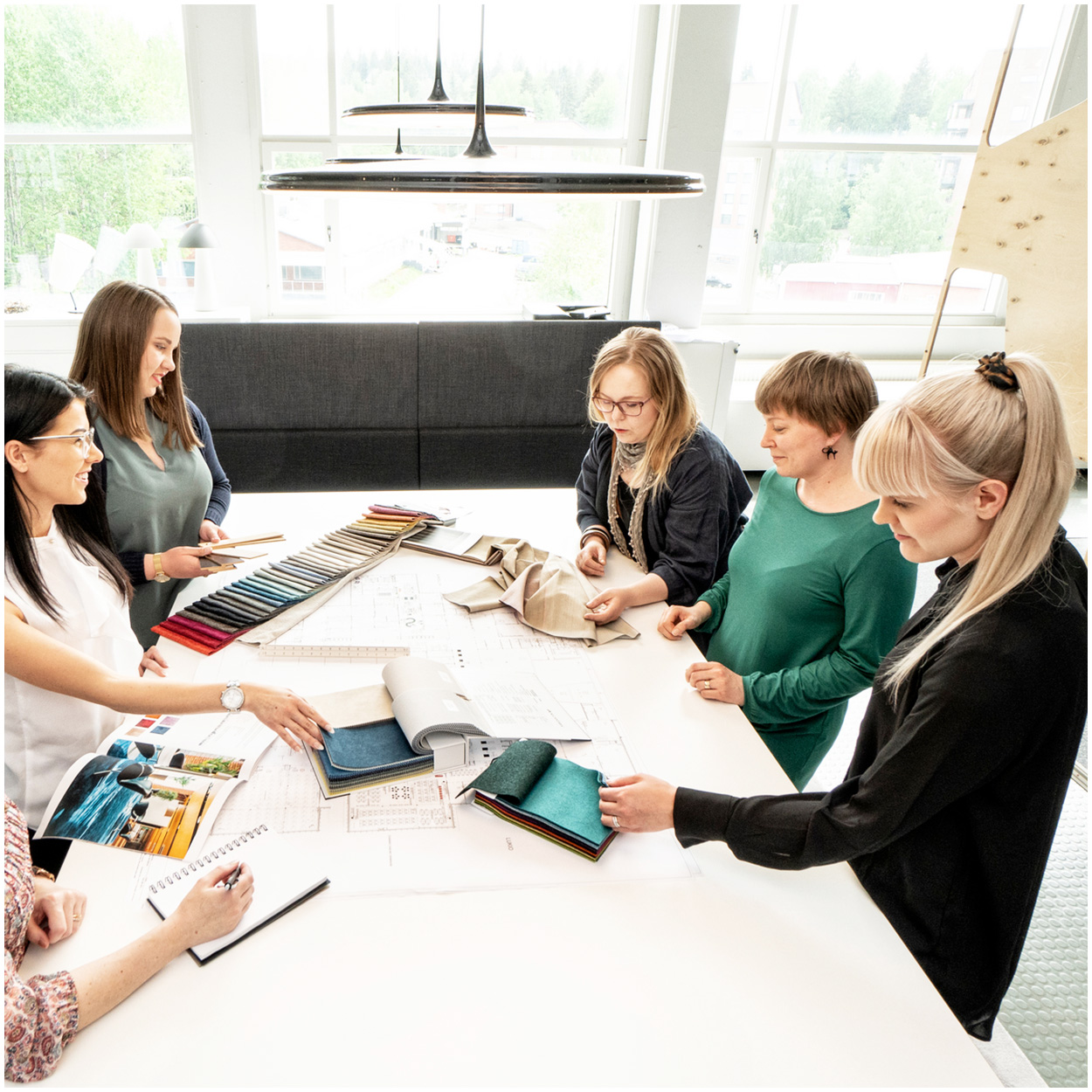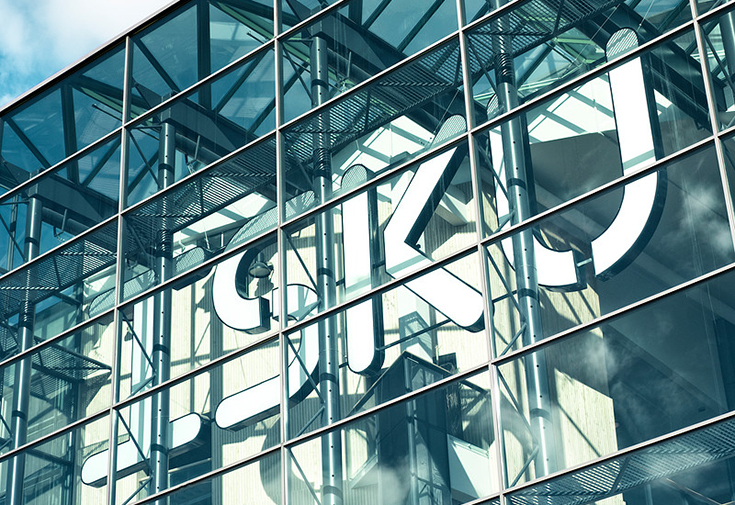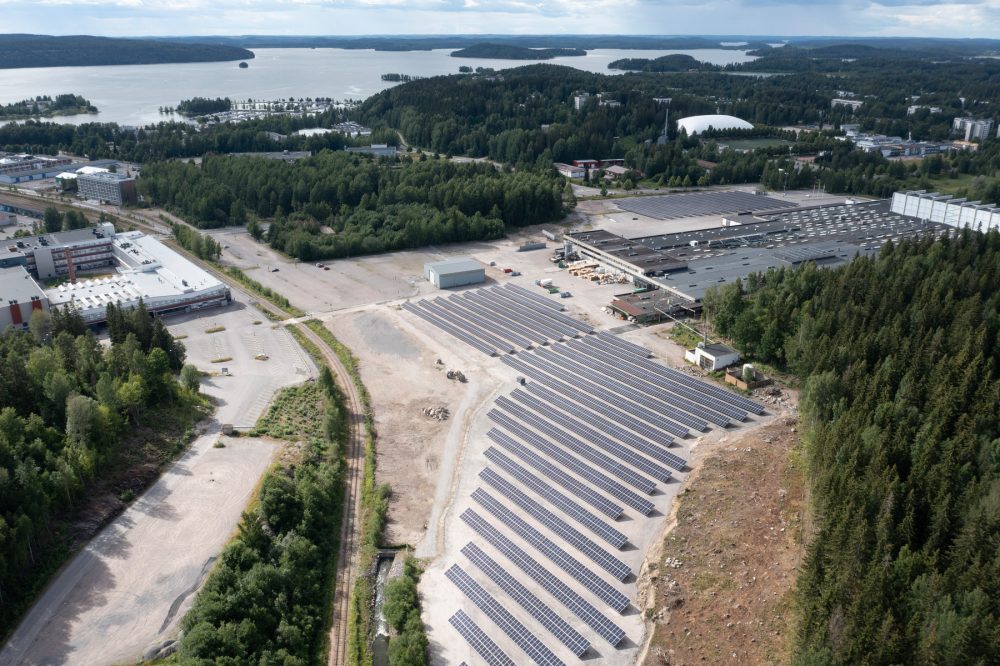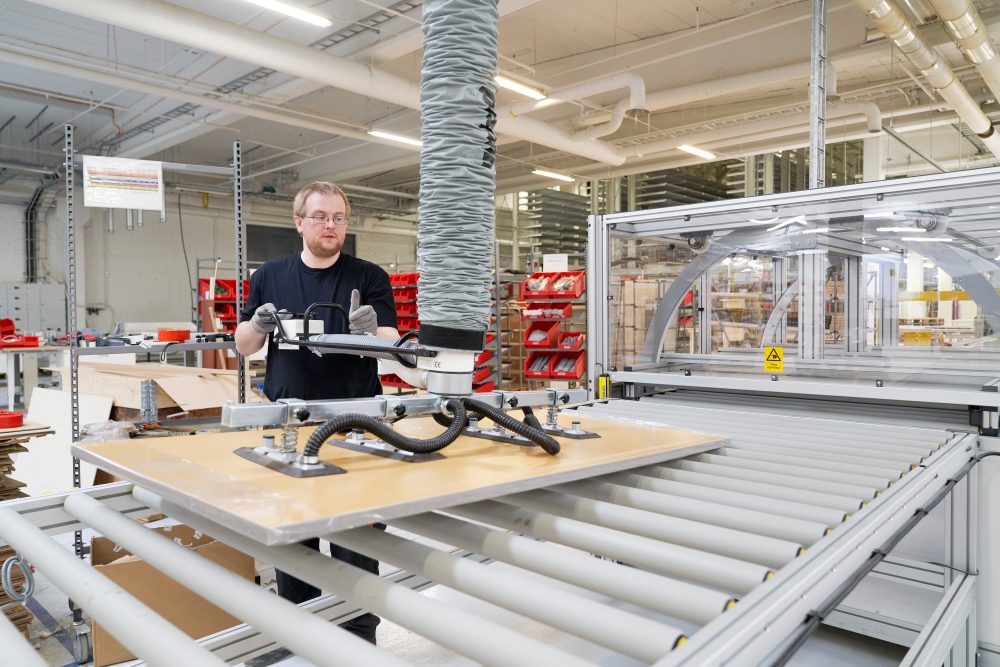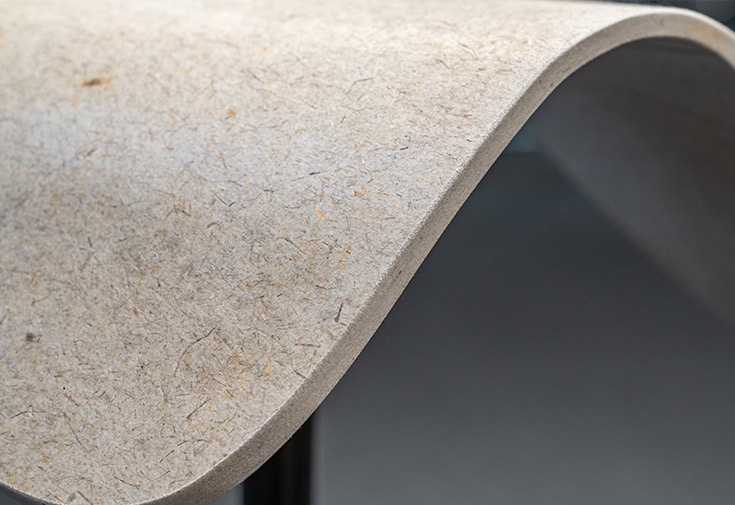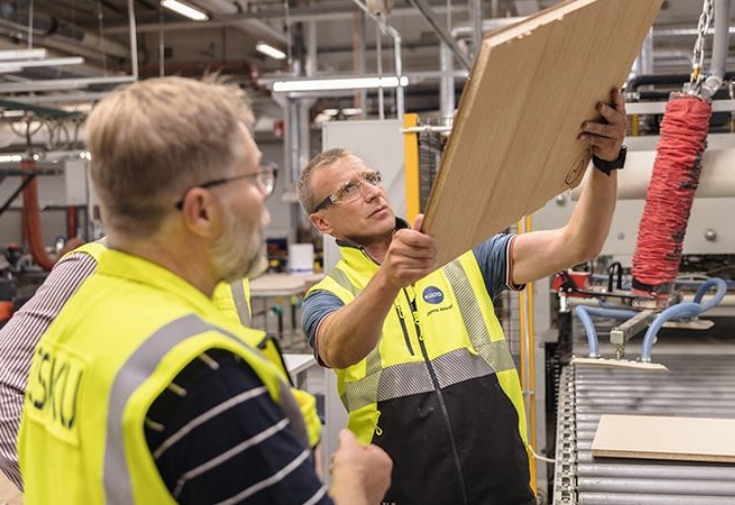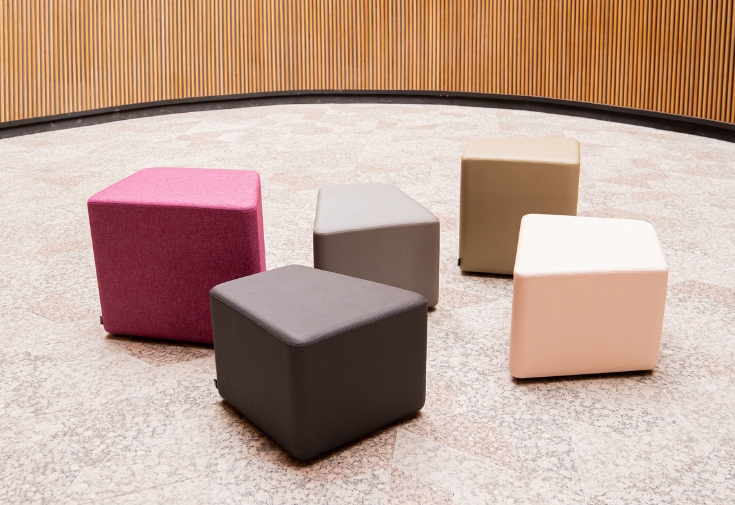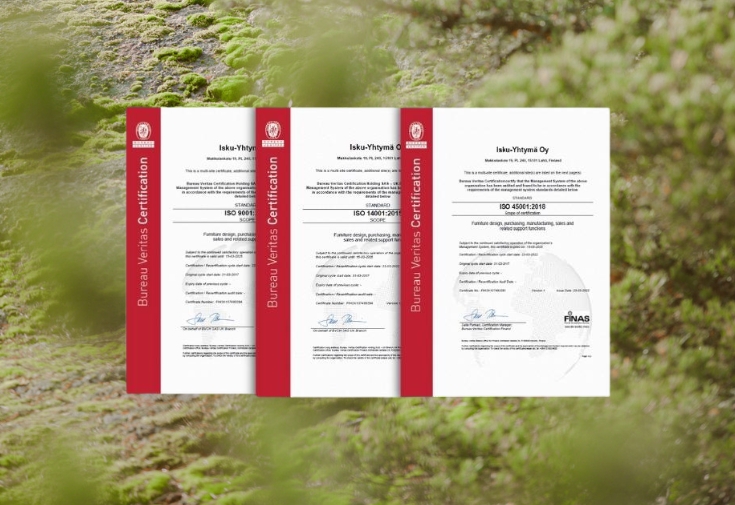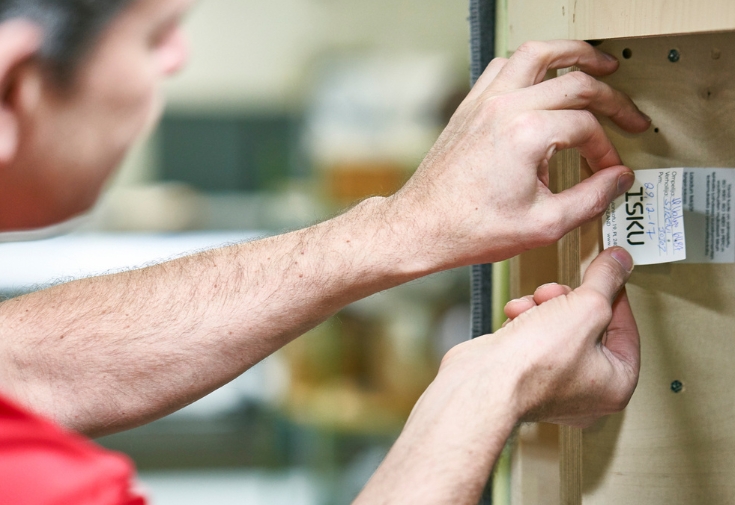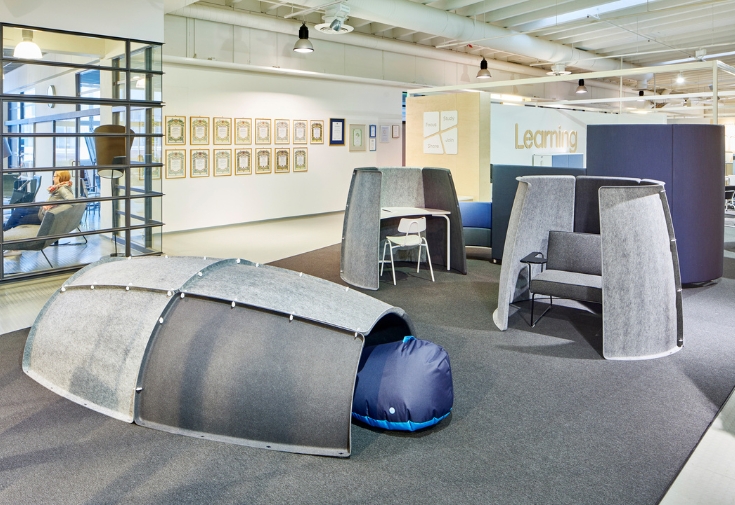For us, sustainability has always meant taking actions. We invest in circular economy thinking and go through the product life cycle from the designer’s desk to a finished piece of furniture. This comes to life, for example, through our ISO 9001 Certified Quality System and ISO 14001 Environmental Management System and by employing the PEFC Certified Wood Origin Tracking System to support sustainable forestry.
To minimize our climate impact and reach carbon neutrality, the carbon footprint of all our operations has recently been calculated by a third party on reliable standards. In addition to this, we have also made product-specific carbon footprint calculations. This way, our sustainable responsibility work comes to life in a concrete way to help guide you and your business in making sustainable choices. To learn more about our responsibility acts over the past decade, see the ISKU Sustainability Achievement Gallery.
Carbon footprint calculations lead the way towards carbon neutrality
One sustainability objective of ISKU has been to determine the carbon footprint of the entire operations. We want to offer our customers solutions that support their way towards carbon neutrality. Our third-party carbon footprint calculations are based on reliable standards. We calculated the carbon footprint of our entire operation as well as product-specific carbon footprint calculations. Such calculations are a great way for us to bring our responsibility work to life and provide our customers concrete ways to choose furniture solutions that support responsible sustainability.
RESPONSIBILITY MEANS TAKING CONCRETE ACTIONS
ISKU continues investing in renewable energy to reduce CO2 emissions
ISKU is a forerunner within its field when it comes to ensuring responsibility of its operations. One of Finland´s largest solar power plants in connection to the ISKU factory in Lahti, is another significant investment in responsibility. The solar power plant with over 6,000 solar panels was inaugurated on October 3, 2022. In the future, a significant part of the electricity used by ISKU factory will be produced locally with solar electricity. The energy produced by the solar power plant corresponds to the energy consumption of ISKU’s production for about seven months.
Discover ISKU’s Renewable Energy InvestmentsISKU joined the UN Global Compact initiative – the world’s largest corporate sustainability initiative
ISKU’s responsibility work has long been based on the Sustainable Development Goals (SDGs) agreed by the UN member states. The SDGs aim to eradicate extreme poverty by 2030, promote equality and justice, and protect the planet. The United Nations Global Compact initiative provides a framework for companies to ambitiously advance these goals. In addition, the Ten Principles of the UN Global Compact, based on international agreements, provide a timeless and solid foundation for responsibility work.
Learn About ISKU’s Commitment to the UN Global CompactForerunner in eco-friendly materials, production and packaging
At ISKU, we demonstrate responsibility through various means. Our focus on quality and sustainability extends through product development, resulting in long-lasting, recyclable items that conserve resources and minimize waste. Since 2015, our production processes have operated without an environmental permit, thanks to low VOC emissions. We’re proud to employ a PEFC system to trace the origin of our timber. Notably, our Still and Step+ office chairs are M1 classified, guaranteeing minimal indoor air emissions, a global first in their category.
Discover ISKUs Safe Materials and ProductsSocial Responsibility
At ISKU, social sustainability means prioritizing collaboration and responsibility towards our customers, staff, and partners. We generate employment opportunities for thousands of Finns across our supply chain, ensuring good working conditions both locally and globally.
During the COVID-19 pandemic, the majority of our employees transitioned to remote work. We facilitated effective and safe remote work by providing necessary tools and offering online training opportunities. At our factories, we rigorously assessed and implemented safe working practices to prevent the spread of the virus. Employees were briefed on hygiene protocols, including handwashing, equipment disinfection, and increased cleaning schedules. These measures were crucial in maintaining a safe working environment amidst the pandemic.

